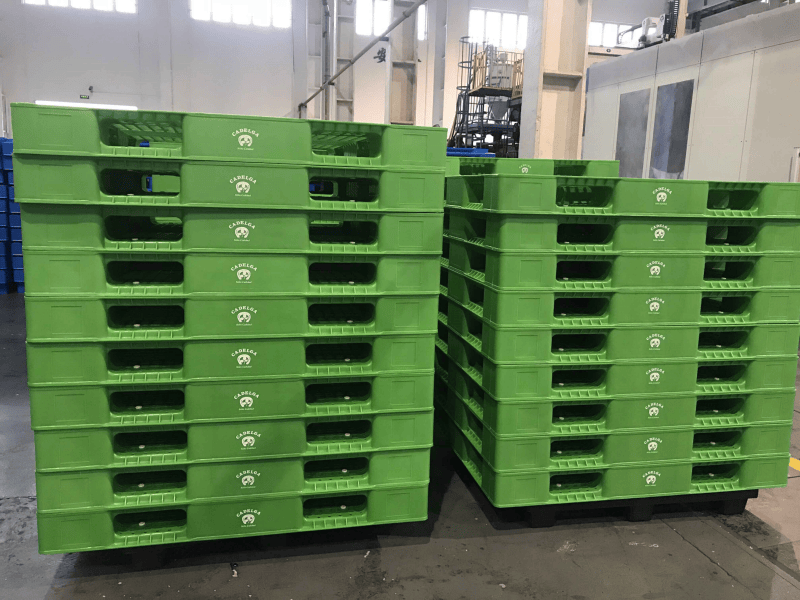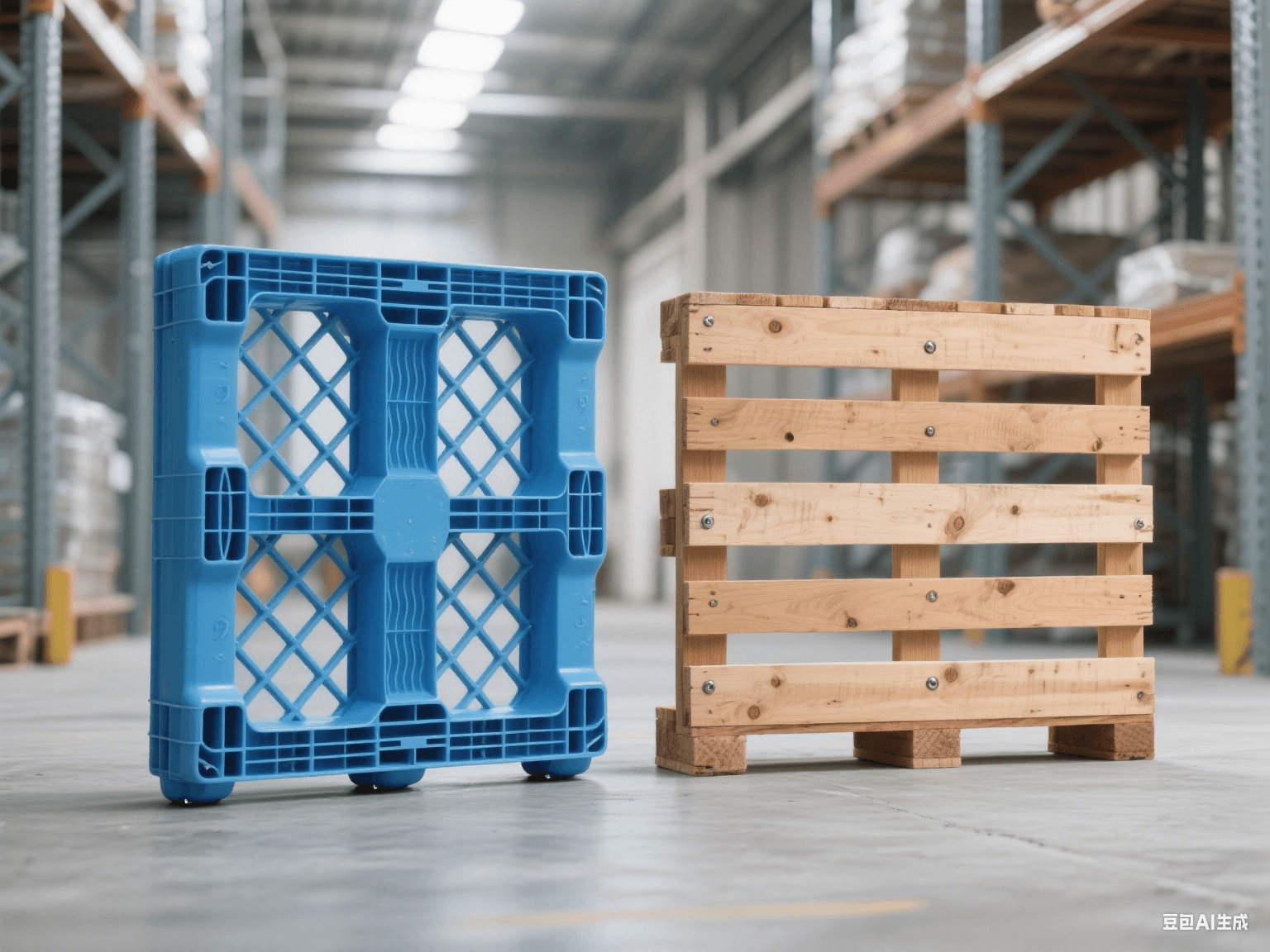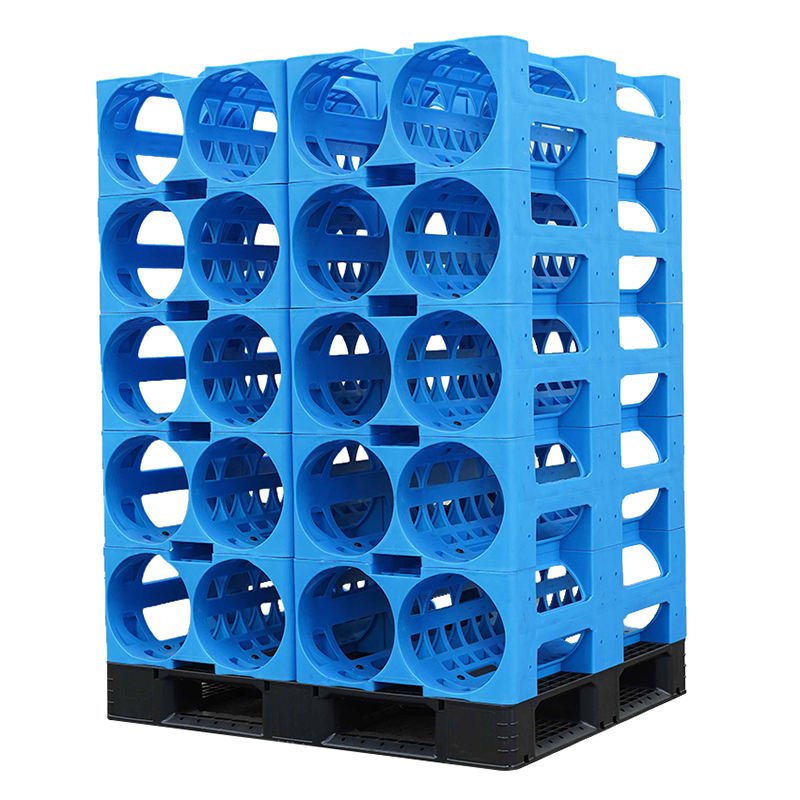Introduction
Pallets are the backbone of modern logistics, influencing product safety, handling efficiency, and transportation costs. While wood pallets dominate the global market due to their long history and low initial cost, plastic pallets have gained traction for their durability, hygiene, and compliance advantages. Understanding the strengths and weaknesses of each type is essential for businesses seeking to optimize supply chain performance and reduce total ownership costs.
What Are Plastic Pallets?
Plastic pallets are molded from materials such as HDPE or PP, offering a uniform, non-porous surface. They are widely used in industries with strict hygiene requirements, including food, pharmaceuticals, and electronics. Their consistent dimensions and compatibility with automation systems make them ideal for high-volume, closed-loop operations.
What Are Wood Pallets?
Wood pallets, typically made from hardwood or softwood, have been the industry standard for decades. They are cost-effective, widely available, and capable of carrying heavy loads. Wood pallets are accepted globally, provided they meet ISPM 15 standards for export, which require heat treatment or fumigation to prevent pest contamination.
Advantages of Plastic Pallets
- Hygienic and Easy to Clean – Non-porous surface prevents bacteria and mold growth.
- Long Service Life – Resistant to moisture, rot, and chemicals, lasting far longer than wood in repeated use.
- Lightweight and Safe – No nails, splinters, or sharp edges, reducing product and worker injury risk.
- Consistent Dimensions – Ideal for automated storage and retrieval systems.
- Recyclable – Can be reprocessed into new pallets, supporting sustainability goals.
Disadvantages of Plastic Pallets
- Higher Upfront Cost – Generally three times the price of wood pallets.
- Limited Repair Options – Damaged pallets usually require full replacement.
- Lower Load Capacity in Some Designs – May not match wood for extremely heavy applications.
- Surface Slippage Risk – Smooth decks may require anti-slip features.
Advantages of Wood Pallets
- Lower Initial Cost – Affordable for large-scale procurement.
- High Load Capacity – Suitable for heavy industrial goods.
- Repairable – Broken boards can be replaced to extend lifespan.
- Biodegradable – Naturally decomposes at end of life.
- Global Compatibility – Accepted by carriers, warehouses, and export authorities worldwide.
Disadvantages of Wood Pallets
- Hygiene Concerns – Absorbs moisture and harbors pests and bacteria.
- Shorter Lifespan – Prone to cracking, rotting, and splintering.
- Higher Weight – Increases shipping costs.
- Export Restrictions – Must meet ISPM 15 requirements.
Plastic Pallets vs. Wood Pallets: Key Differences
Plastic pallets excel in hygiene, durability, and dimensional accuracy, making them suitable for long-term, high-standard operations. Wood pallets remain advantageous in cost-sensitive, heavy-duty, or one-way shipping scenarios. The decision often hinges on total cost per trip, industry regulations, and handling requirements.
How to Choose the Right Pallet for Your Business
- Evaluate Lifecycle Costs – Consider purchase price, lifespan, and maintenance.
- Check Industry Standards – Match hygiene and regulatory needs.
- Assess Load and Handling – Align material strength with operational demands.
- Consider Sustainability – Factor in recyclability and environmental impact.
Conclusion
Both plastic and wood pallets have distinct roles in modern supply chains. Plastic offers long-term value and compliance benefits, while wood remains the practical choice for cost-conscious, short-term, or heavy-load shipments. A mixed approach—using each where it delivers maximum value—can be the most strategic solution for many businesses.




